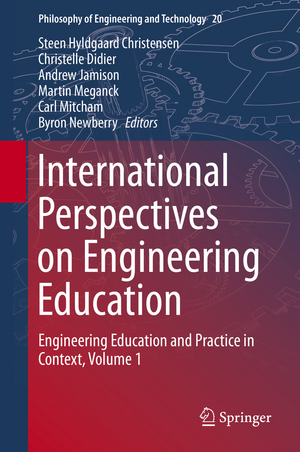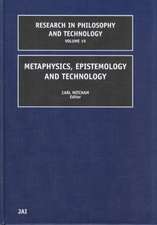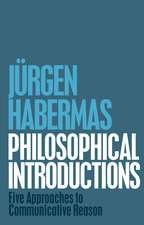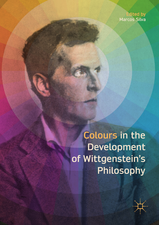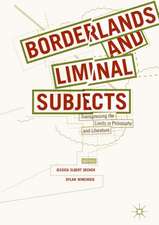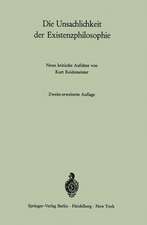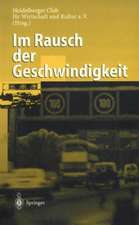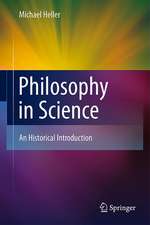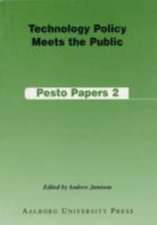International Perspectives on Engineering Education: Engineering Education and Practice in Context, Volume 1: Philosophy of Engineering and Technology, cartea 20
Editat de Steen Hyldgaard Christensen, Christelle Didier, Andrew Jamison, Martin Meganck, Carl Mitcham, Byron Newberryen Limba Engleză Hardback – 9 iun 2015
Whether and in what way engineering education is or ought to be contextualized or de-contextualized is an object of heated debate among engineering educators. The uniqueness of this study is that this debate is given comprehensive coverage – presenting both instrumentally inclined as well as radical positions on transforming engineering education.
In contextualizing engineering education, this book offers diverse commentary from a range of disciplinary, meta- and interdisciplinary perspectives on how cultural, professional, institutional and educational systems contexts shape histories, structural dynamics, ideologies and challenges as well as new pathways in engineering education. Topics addressed include examining engineering education in countries ranging from India to America, to racial and gender equity in engineering education and incorporating social awareness into the area.
Using context as “bridge” this book confronts engineering education head on. Contending engineering ideologies and corresponding views on context are juxtaposed with contending discourses of reform. The uniqueness of the book is that it brings together scholars from the humanities, the social sciences and engineering from Europe – both East and West – with the United States, China, Brazil, India and Australia.
| Toate formatele și edițiile | Preț | Express |
|---|---|---|
| Paperback (1) | 653.46 lei 6-8 săpt. | |
| Springer International Publishing – 17 oct 2016 | 653.46 lei 6-8 săpt. | |
| Hardback (1) | 660.04 lei 6-8 săpt. | |
| Springer International Publishing – 9 iun 2015 | 660.04 lei 6-8 săpt. |
Din seria Philosophy of Engineering and Technology
-
 Preț: 378.64 lei
Preț: 378.64 lei - 15%
 Preț: 662.95 lei
Preț: 662.95 lei -
 Preț: 280.88 lei
Preț: 280.88 lei - 20%
 Preț: 551.31 lei
Preț: 551.31 lei - 15%
 Preț: 646.75 lei
Preț: 646.75 lei - 24%
 Preț: 806.73 lei
Preț: 806.73 lei - 18%
 Preț: 1110.86 lei
Preț: 1110.86 lei - 15%
 Preț: 639.23 lei
Preț: 639.23 lei -
 Preț: 392.97 lei
Preț: 392.97 lei - 18%
 Preț: 958.07 lei
Preț: 958.07 lei - 15%
 Preț: 645.28 lei
Preț: 645.28 lei - 15%
 Preț: 644.63 lei
Preț: 644.63 lei -
 Preț: 394.12 lei
Preț: 394.12 lei -
 Preț: 393.52 lei
Preț: 393.52 lei - 15%
 Preț: 638.90 lei
Preț: 638.90 lei - 15%
 Preț: 654.43 lei
Preț: 654.43 lei - 15%
 Preț: 646.43 lei
Preț: 646.43 lei - 18%
 Preț: 788.90 lei
Preț: 788.90 lei - 15%
 Preț: 646.75 lei
Preț: 646.75 lei -
 Preț: 370.49 lei
Preț: 370.49 lei -
 Preț: 387.78 lei
Preț: 387.78 lei - 18%
 Preț: 735.07 lei
Preț: 735.07 lei - 18%
 Preț: 956.18 lei
Preț: 956.18 lei - 15%
 Preț: 637.59 lei
Preț: 637.59 lei - 18%
 Preț: 1009.40 lei
Preț: 1009.40 lei - 18%
 Preț: 787.91 lei
Preț: 787.91 lei - 15%
 Preț: 638.89 lei
Preț: 638.89 lei - 20%
 Preț: 566.75 lei
Preț: 566.75 lei - 18%
 Preț: 725.43 lei
Preț: 725.43 lei
Preț: 660.04 lei
Preț vechi: 776.52 lei
-15% Nou
Puncte Express: 990
Preț estimativ în valută:
126.30€ • 131.86$ • 104.53£
126.30€ • 131.86$ • 104.53£
Carte tipărită la comandă
Livrare economică 05-19 aprilie
Preluare comenzi: 021 569.72.76
Specificații
ISBN-13: 9783319161686
ISBN-10: 3319161687
Pagini: 400
Ilustrații: XXXIV, 530 p. 16 illus.
Dimensiuni: 155 x 235 x 38 mm
Greutate: 0.96 kg
Ediția:2015
Editura: Springer International Publishing
Colecția Springer
Seria Philosophy of Engineering and Technology
Locul publicării:Cham, Switzerland
ISBN-10: 3319161687
Pagini: 400
Ilustrații: XXXIV, 530 p. 16 illus.
Dimensiuni: 155 x 235 x 38 mm
Greutate: 0.96 kg
Ediția:2015
Editura: Springer International Publishing
Colecția Springer
Seria Philosophy of Engineering and Technology
Locul publicării:Cham, Switzerland
Public țintă
ResearchCuprins
General Introduction.- The Engineering - Context Nexus: A Perennial Discourse; Steen Hyldgaard Christensen, Christelle Didier, Andrew Jamison, Martin Meganck, Carl Mitcham and Byron Newberry.- Section 1. Histories, Dynamics and Structures in Engineering Education.- Section Introduction Atsushi Akera and Erin Cech.- Chapter 1. A Historical Survey of the Structural Changes in the American System of Engineering Education.- Atsushi Akera and Bruce Seely.- Chapter 2. The Role of Research in Academic Drift Processes in European and American Professional Engineering Education outside the Universities; Steen Hyldgaard Christensen and Byron Newberry.- Chapter 3. Structural Transformations in Higher Engineering Education in Europe; Bernard Delahousse and Wilhelm Bomke.- Chapter 4. Engineering Brazil: National Engineering Capability at Stake; Édison Renato Silva, Roberto Bartholo, and Domício Proença Jr.- Chapter 5. Engineering Education in India: A Comprehensive Overview; Balasundaram Subramanian.- Chapter 6. Engineering Education in Slavic Languages Countries; Maria Kostyszak, Jan Wadowski, and Marcin Zaród.- Section 2. Ideologies of Engineering Education.- Section Introduction; Brent K. Jesiek and Christelle Didier; Chapter 7. Confucianism, Marxism, and Pragmatism: The Intellectual Contexts of Engineering Education in China; Qin Zhu and Brent K. Jesiek.- Chapter 8. Meritocracy, Technocracy, Democracy: Understandings of Racial and Gender Equity in American Engineering Education; Amy Slaton.- Chapter 9. Challenges of Overcoming Structural Barriers for African American Engineers in the United States and in the African Diaspora; Derrick Hudson.- Chapter 10. Depoliticization and the Structure of Engineering Education; Erin Cech and Heidi Sherick.- Section 3. Reforming Engineering Education: Experiences and Cases.- Section Introduction; Steen Hyldgaard Christensen and Niels Mejlgaard.- Chapter 11. Bridging Sustainable Community Development and Social Justice ; Juan Lucena.- Chapter 12. Energy Ethics in Science and Engineering Education; Joseph Herkert, Rachelle Hollander, Clark Miller, Frazier Benya, Chad Monfreda, and Lynette Os-borne.- Chapter 13. Engineering for the Real World: Diversity, Innovation and Hands-on Learning; Jessica Rolston and Elizabeth Cox.- Chapter 14. Fostering Hybridity: Teaching about Context in Engineering Education; Andrew Jamison, Niels Mejlgaard, and Jette Egelund Holgaard.- Chapter 15. Constructions of the Core of Engineering: Technology and Design as Modes of Social Intervention; Ulrik Jørgensen.- Chapter 16. Transforming Engineering Education: For Technological Innovation and International Development; Tony Marjoram.- Chapter 17. Appropriate Curricula for Engineering Management Programs: A South African Approach; Alan C. Brent.- Section 4. Innovative Approaches and New Pathways.- Section Introduction.- Dean Nieusma and Louis L. Bucciarelli.- Chapter 18. Design-based Research: A Strategy for Change in Engineering Education; Anette Kolmos.- Chapter 19. Engineering Education Research as Engineering Research; Jonte Bernhard.- Chapter 20. Analyzing Context by Design: Engineering Education Reform via Social-Technical Integration; Dean Nieusma.- Chapter 21. PDS: Engineering as Problem Definition and Solution.- Gary Lee Downey.- Chapter 22. Implementing Social Awareness into Engineering Curricula; Javier Cañavate, Manuel José Lis Arias and Josep Maria Casasús.- Chapter 23. Engineering as a Socio-technical Process: Case-based Learning from the Example of Wind Technology Development; Matthias Heymann.- Chapter 24. Getting Context back into Engineering Education; Anders Buch and Louis L. Bucciarelli.- Chapter 25. Techno-Anthropology and Engineering Education: Between Hybridiza-tion and Social Responsibility; Lars Botin and Tom Børsen.
Recenzii
“The two volumes together provide an extensive space for a varied array of individuals, established and ascending, who are reflecting thoughtfully about engineering education and practice from a variety of perspectives and disciplines at a possible inflection point for the profession.” (Glen Miller, Technology, Knowledge and Learning, Vol. 22, 2017)
Notă biografică
Steen Hyldgaard Christensen M.A. in Scandinavian Language and Literature and the History of Ideas, Aarhus University. Ph.D. in Educational Studies, Aalborg University. Senior lecturer at Aarhus University, School of Business and Social Sciences, Herning, Denmark, until 2014. From 2014, adjunct associate professor at Aalborg University, Denmark. He has initiated six big international inter- and metadisciplinary research projects on engineering including PROCEED and coordinated fi ve of them. He has acted in roles of editor-in-chief and coauthor of four books: Profession, Culture, and Communication: An Interdisciplinary Challenge to Business and Engineering (Institute of Business Administration and Technology Press 2003); Philosophy in Engineering (Academica 2007); Engineering in Context (Academica 2009); and Engineering, Development and Philosophy: American, Chinese, and European Perspectives (Springer 2012). Besides, he has coauthored A Hybrid Imagination: Science and Technology in Cultural Perspective (Morgan & Claypool Publishers 2011) together with Andrew Jamison and Lars Botin. In addition, he has published a number of articles on engineering epistemology, culture, and education. Current research interest includes academic drift in engineering education and structural dynamics in higher education.
Christelle Didier B.S. in Electrochemistry Engineering, M.A. in Education, Ph.D. in Sociology from Ecole des Hautes Etudes en Sciences Sociales (EHESS), Paris. From 1993 to 2013, Assistant Professor, Lille University, France, Ethics Department. Assistant Professor, Charles de Gaulle University of Lille, Education Department. Member of CIREL (EA 4354). Coauthor of Ethique industrielle (DeBoeck, Brussels, 1998) and author of Penser l’éthique des ingénieurs (PUF, Paris 2008) and Les ingénieurs et l’éthique: Pour un regard sociologique (Hermes 2008). She has published many articles on ethics and social responsibility in the engineering profession and education and on the engineering profession’s values (from interviews and extensive surveys). Her research areas are engineering ethics and values, including historical, cultural, and gender perspective, sustainable development and corporate social responsibility, social responsibility.
Andrew Jamison B.A. in History and Science from Harvard University, Ph.D. in Theory of Science from University of Gothenburg (Göteborg). Docent in Theory of Science, University of Gothenburg. Professor of Technology, Environment, and Society at Aalborg University. Coordinator of Program of Research on Opportunities and Challenges in Engineering Education in Denmark (PROCEED), 2010–2013, and author, most recently, of The Making of Green Knowledge: Environmental Politics and Cultural Transformation (Cambridge 2001), Hubris and Hybrids: A Cultural History of Technology and Science , with Mikael Hård (Routledge 2005), A Hybrid Imagination: Science and Technology in Cultural Perspective (Morgan & Claypool Publishers 2011) together with Steen Hyldgaard Christensen and Lars Botin, and The Making of Green Engineers: Sustainable Development and the Hybrid Imagination (Morgan and Claypool 2013).
Martin Meganck M.Sc. in Chemical Engineering from Ghent University, Ph.D. in Chemical Engineering, and M.A. Moral Theology both from KU Leuven. Lecturer in Philosophy and Ethics in the Faculty of Engineering Technology, researcher at the Center for Science, Technology, and Ethics, and the Theological Faculty of the KU Leuven. Teaching areas include Philosophy of Science, Philosophy of Technology, and Professional and Business Ethics. He was coauthor and coeditor of Philosophy in Engineering (Academica 2007) and Engineering in Context (Academica 2009).
Carl Mitcham B.A. and M.A. in Philosophy from University of Colorado, Boulder. Ph.D. in Philosophy from Fordham University. Professor of Philosophy of Science and Technology, Renmin University of China, Beijing; Liberal Arts and International Studies, Colorado School of Mines, Golden, Colorado. Scholarly contributions have been directed toward the philosophy and ethics of science, technology, engineering, and medicine and to science, technology, and society (STS) studies. Teaching areas include ethics, STS, and science and technology policy.
Byron Newberry B.S. in Aerospace Engineering, University of Alabama. M.S. in Aerospace Engineering and Ph.D. in Engineering Mechanics, both from Iowa State University. Professor of Mechanical Engineering, Baylor University. Baylor Fellow for teaching. Professional Engineer (PE) Texas, USA. Research interests include engineering design, engineering ethics, and philosophy of engineering and technology. Aircraft structural engineering consultant. Executive board member, National Institute for Engineering Ethics. Editor of the Springer Philosophy of Engineering and Technology book series.
Christelle Didier B.S. in Electrochemistry Engineering, M.A. in Education, Ph.D. in Sociology from Ecole des Hautes Etudes en Sciences Sociales (EHESS), Paris. From 1993 to 2013, Assistant Professor, Lille University, France, Ethics Department. Assistant Professor, Charles de Gaulle University of Lille, Education Department. Member of CIREL (EA 4354). Coauthor of Ethique industrielle (DeBoeck, Brussels, 1998) and author of Penser l’éthique des ingénieurs (PUF, Paris 2008) and Les ingénieurs et l’éthique: Pour un regard sociologique (Hermes 2008). She has published many articles on ethics and social responsibility in the engineering profession and education and on the engineering profession’s values (from interviews and extensive surveys). Her research areas are engineering ethics and values, including historical, cultural, and gender perspective, sustainable development and corporate social responsibility, social responsibility.
Andrew Jamison B.A. in History and Science from Harvard University, Ph.D. in Theory of Science from University of Gothenburg (Göteborg). Docent in Theory of Science, University of Gothenburg. Professor of Technology, Environment, and Society at Aalborg University. Coordinator of Program of Research on Opportunities and Challenges in Engineering Education in Denmark (PROCEED), 2010–2013, and author, most recently, of The Making of Green Knowledge: Environmental Politics and Cultural Transformation (Cambridge 2001), Hubris and Hybrids: A Cultural History of Technology and Science , with Mikael Hård (Routledge 2005), A Hybrid Imagination: Science and Technology in Cultural Perspective (Morgan & Claypool Publishers 2011) together with Steen Hyldgaard Christensen and Lars Botin, and The Making of Green Engineers: Sustainable Development and the Hybrid Imagination (Morgan and Claypool 2013).
Martin Meganck M.Sc. in Chemical Engineering from Ghent University, Ph.D. in Chemical Engineering, and M.A. Moral Theology both from KU Leuven. Lecturer in Philosophy and Ethics in the Faculty of Engineering Technology, researcher at the Center for Science, Technology, and Ethics, and the Theological Faculty of the KU Leuven. Teaching areas include Philosophy of Science, Philosophy of Technology, and Professional and Business Ethics. He was coauthor and coeditor of Philosophy in Engineering (Academica 2007) and Engineering in Context (Academica 2009).
Carl Mitcham B.A. and M.A. in Philosophy from University of Colorado, Boulder. Ph.D. in Philosophy from Fordham University. Professor of Philosophy of Science and Technology, Renmin University of China, Beijing; Liberal Arts and International Studies, Colorado School of Mines, Golden, Colorado. Scholarly contributions have been directed toward the philosophy and ethics of science, technology, engineering, and medicine and to science, technology, and society (STS) studies. Teaching areas include ethics, STS, and science and technology policy.
Byron Newberry B.S. in Aerospace Engineering, University of Alabama. M.S. in Aerospace Engineering and Ph.D. in Engineering Mechanics, both from Iowa State University. Professor of Mechanical Engineering, Baylor University. Baylor Fellow for teaching. Professional Engineer (PE) Texas, USA. Research interests include engineering design, engineering ethics, and philosophy of engineering and technology. Aircraft structural engineering consultant. Executive board member, National Institute for Engineering Ethics. Editor of the Springer Philosophy of Engineering and Technology book series.
Textul de pe ultima copertă
This inclusive cross-cultural study rethinks the nexus between engineering education and context. In so doing the book offers a reflection on contextual boundaries with an overall boundary crossing ambition and juxtaposes important cases of critical participation within engineering education with sophisticated scholarly reflection on both opportunities and discontents.
Whether, and in what way engineering education is or ought to be contextualized or de-contextualized is an object of heated debate among engineering educators. The uniqueness of this study is that this debate is given comprehensive coverage – presenting both instrumentally inclined as well as radical positions on transforming engineering education.
In contextualizing engineering education, this book offers diverse commentary from a range of disciplinary, meta- and interdisciplinary perspectives on how cultural, professional, institutional, and educational systems contexts shape histories, structural dynamics, ideologies and challenges as well as new pathways in engineering education. Topics addressed include examining engineering education in countries ranging from India to America, to racial and gender equity in engineering education and incorporating social awareness into the area.
Using context as “bridge” this book confronts engineering education head on. Contending engineering ideologies and corresponding views on context are juxtaposed with contending discourses of reform. The uniqueness of the book is that it brings together scholars from the humanities, the social sciences and engineering from Europe – both East and West – with the United States, China, Brazil, India and Australia.
Whether, and in what way engineering education is or ought to be contextualized or de-contextualized is an object of heated debate among engineering educators. The uniqueness of this study is that this debate is given comprehensive coverage – presenting both instrumentally inclined as well as radical positions on transforming engineering education.
In contextualizing engineering education, this book offers diverse commentary from a range of disciplinary, meta- and interdisciplinary perspectives on how cultural, professional, institutional, and educational systems contexts shape histories, structural dynamics, ideologies and challenges as well as new pathways in engineering education. Topics addressed include examining engineering education in countries ranging from India to America, to racial and gender equity in engineering education and incorporating social awareness into the area.
Using context as “bridge” this book confronts engineering education head on. Contending engineering ideologies and corresponding views on context are juxtaposed with contending discourses of reform. The uniqueness of the book is that it brings together scholars from the humanities, the social sciences and engineering from Europe – both East and West – with the United States, China, Brazil, India and Australia.
Caracteristici
Offers a broad and comprehensive range of disciplinary, inter- and meta-disciplinary perspectives on engineering education Draws upon the work of scholars from the humanities, social sciences, and engineering from Europe, USA, China, Brazil and India, thus cross-fertilizing the emerging field of engineering education research Addresses topics ranging from a view of engineering education from a national perspective to including racial, gender and other social awareness considerations
